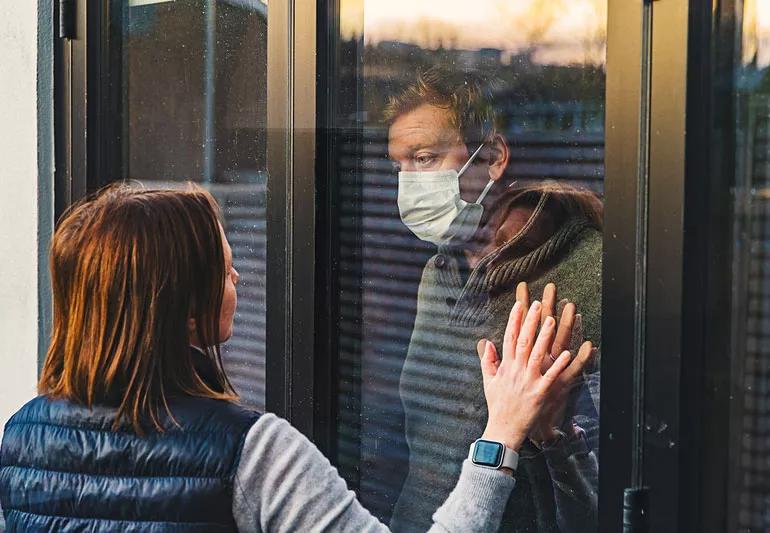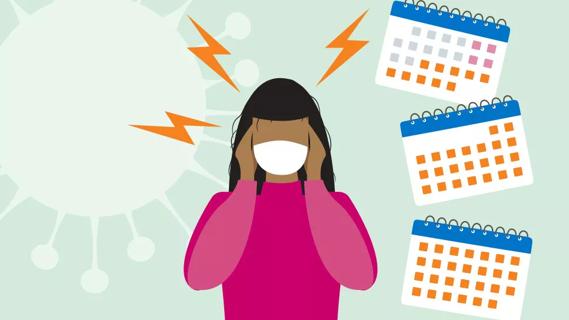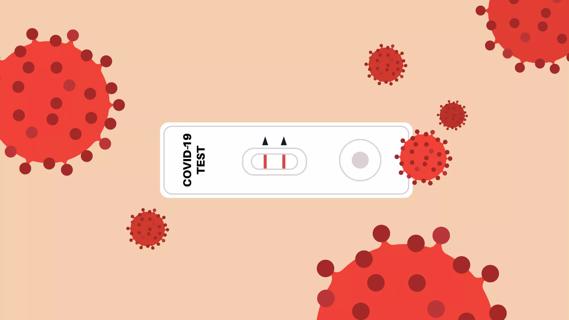Be mindful of signs of depression when you’re isolating

It’s normal to feel anxiety, worry and grief any time you’re diagnosed with a medical condition – and that’s certainly true if you test positive for COVID-19, or are presumed to be positive.
Advertisement
Cleveland Clinic is a non-profit academic medical center. Advertising on our site helps support our mission. We do not endorse non-Cleveland Clinic products or services. Policy
If your symptoms aren’t severe and you can recover at home, this will involve home isolation until it’s safe for you to be near others without potentially spreading the infection.
Isolation protects others from getting sick – but for the person who is sick, it might seem like one more thing on top of an already stressful situation.
“Being sick is not only hard on your physical well being but it can also significantly impact your mental health. Recovering from an illness can trigger stress, anxiety and depression which slow down your recovery processes. Tending to your emotional health during this time is key,” says psychologist Susan Albers, PsyD.
Here are some ways to keep anxiety and sadness from creeping in while you recover from COVID-19:
You may not know how you got infected, or how long it will take to recover. Instead of focusing your energy on regret or what ifs, double down on what you can do. Your job now is to take care of yourself, get well and avoid spreading the infection to anyone else.
Ask loved ones to check in on you regularly via phone, email or video chat. Talk to them about how you’re feeling. If you’re worried about taking care of children, pets or household duties while you’re sick, identify family members, friends or members of your community who aren’t part of a high-risk population and may be able to help.
Advertisement
Feed your body nutritious food (over comfort food) when your appetite allows, and stay hydrated. If you’re able, take deep breaths, meditate or stretch to help relax your body.
Keep yourself distracted to help prevent worry, ruminating or catastrophizing. Read a book, watch a show, do a puzzle. Many people find it difficult to focus on tasks while ill. Try calming music. It can help you to relax and distract your mind, Dr. Albers says.
Give yourself permission to just rest. You don’t have to do or achieve anything besides taking care of yourself. Now isn’t the time to stay up till 3 a.m. binge watching a new show.
All the chatter online can make you feel even more upset and overwhelmed. “Slow down the scroll of your social media feed or simply put it aside. Viewing what other people are doing 24/7 can make you feel like you are missing out or depressed about your situation. Remember that this will pass,” Dr. Albers says.
Being socially isolated can increase your risk of depression and anxiety. While you recover, watch out for these common red flags:
Dr. Albers notes that many behavioral health professionals are still seeing patients virtually, so if you can’t seem to control your negative thoughts, or experience any of these signs for more than two weeks, ask your healthcare provider to refer you to someone.
Advertisement
Learn more about our editorial process.
Advertisement

The short answer: It’s complicated, but the basic care precautions still prevail, like washing your hands and isolating if you’re sick

They can feel like a typical headache or a migraine headache, but the pain can last for weeks to months

Any large social gathering — from a family birthday party to an indoor music concert — has the potential to spread serious infection

It’s important to connect with a healthcare provider, get quality sleep and balance your activities with your energy levels

Just like the flu, COVID-19 will continue to evolve every year

The duration varies, but symptoms can linger for a few days up to a couple weeks or more

Vaccination is best for prevention, but if you get sick with COVID-19, treatments are available

The virus lives best in humans, but it can last on hard surfaces, like doorknobs and railings

Type 2 diabetes isn’t inevitable with these dietary changes

Applying a hot or cold compress can help with pain